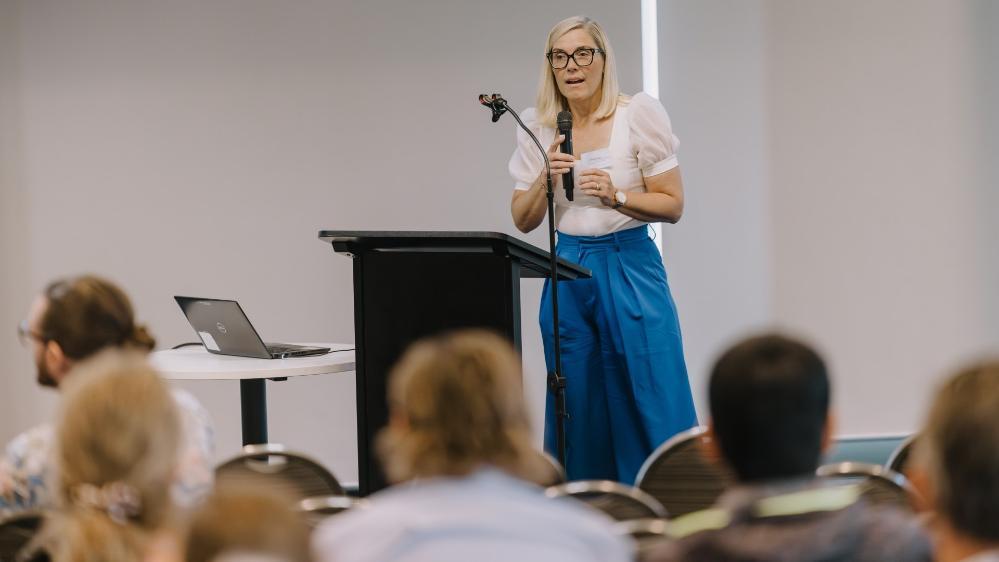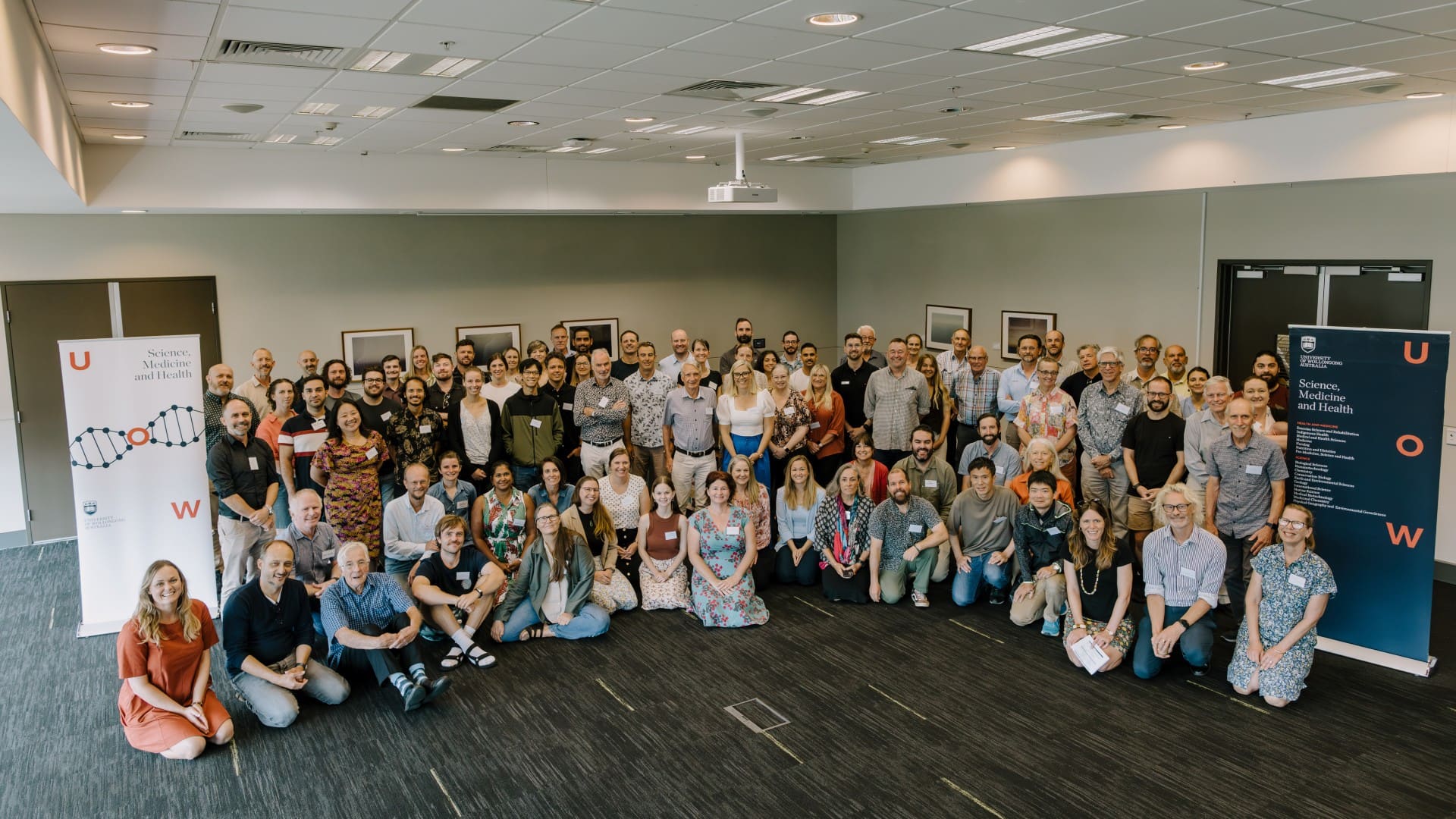February 9, 2024
Experts examine challenges facing dynamic coastal environments
Symposium focuses on more than 30 years of coastal teaching and research at UOW
Coasts are some of the most dynamic environments on Earth, constantly changing and responding to the tides, to the landscape, and to the waves.
A two-day symposium held at the University of Wollongong (UOW) this week (7-8 February) has cast a light on the natural and human, or anthropogenic, factors that impact our coastlines.
Coastal scientists and coastal managers from around the world took part in the Dynamic Coasts Symposium at Innovation Campus, focusing on coastal environments, how they are shaped, and the local and global environmental factors that challenge their sustainable use in future.
Sponsored by the Environmental Futures Research Centre at UOW, the symposium examined more than 30 years of coastal research at UOW, synthesising some of the studies that staff and students have undertaken in the past, together with those from leading researchers in the field.

Coastal environments have been the focus of research for a group of scientists in the School of Earth, Atmospheric and Life Sciences, in collaboration with partner organisations and researchers from other universities and state and national government.
During the symposium, renowned coastal researchers and experts explored topics such as reefs and low-lying islands; coastal wetlands; rocky coasts; Indigenous knowledge of coastlines; beaches; and the role of science in coastline management. The sessions were led by UOW’s outstanding coastal scientists, including Professor Kerrylee Rogers, Associate Professor Sarah Hamylton, Dr Jeff Kelleway; Associate Professor Brian Jones; and Senior Professor Colin Murray-Wallace.
Professor Colin Woodroffe, a coastal geomorphologist in the School of Earth, Atmospheric and Life Sciences, said the event enabled those with an interest in the field of coastal studies and management the chance to re-visit fascinating research that had taken place over the decades while providing a unique look at the challenges ahead.
“We are incredibly fortunate to have spectacular coastlines in the Illawarra and along the South Coast of NSW, but these coastlines are changing, as a result of natural processes and also increasingly as a consequence of anthropogenic pressures,” Professor Woodroffe said.

“Bringing these terrific academic minds together, along with coastal managers and former students who have become active researchers, was a chance to evaluate how far we have come, how much knowledge we have gained, how much we have left to learn about these dynamic, ever-changing environments. As beautiful as coasts are, there are many challenges ahead both along the South Coast of New South Wales, and across the broader Indo-Pacific region.
“The symposium strengthened the collaborative links that have been established across local, state, and national governments, and with other key stakeholders, and considered the threats to these coastal environments from both local anthropogenic stresses and regional/global trends, such as climate change and sea-level rise.”
The event coincided with the retirement of Professor Woodroffe, who has taught undergraduate students and supervised research students at UOW over more than three decades.
Professor Woodroffe has published extensively across the field of coastal research, including the impact of sea-level rises on coastlines, blue carbon in mangrove forests, the evolution of estuaries, and the vulnerability of coral reefs. His fieldwork has taken him to islands in the West Indies, throughout Australia and New Zealand, and to the Pacific and Indian Oceans.
